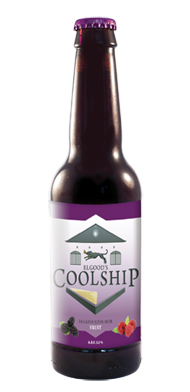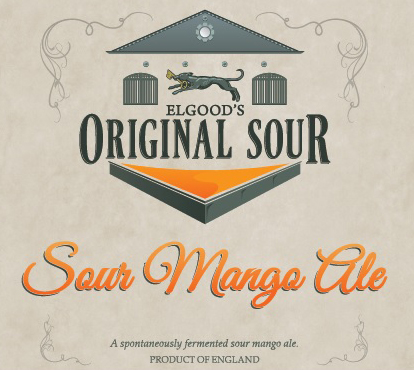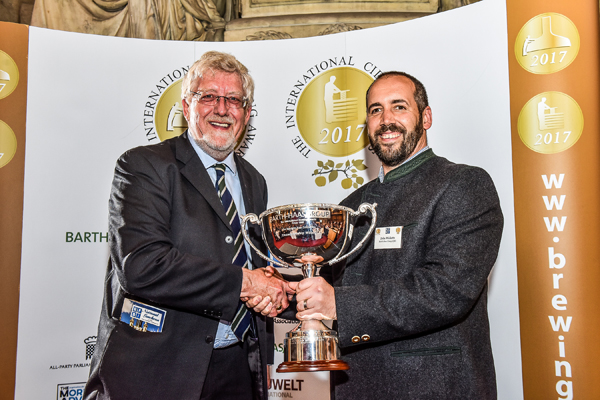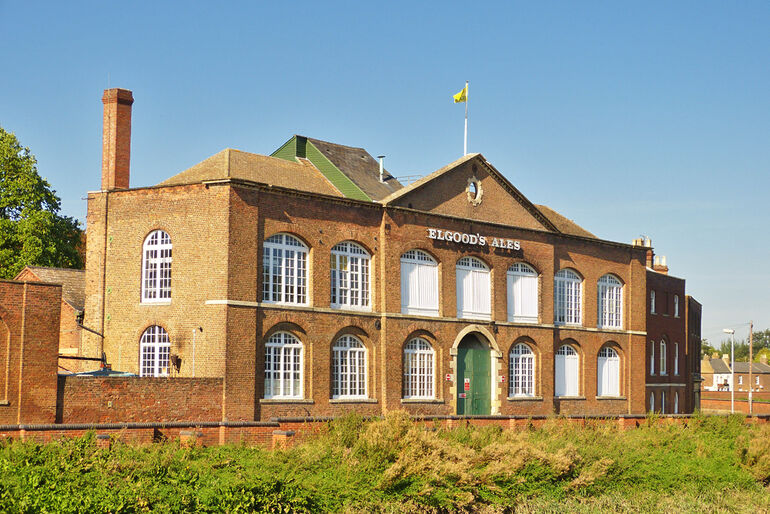Start 14-Day Trial Subscription
*No credit card required

Sterling Tradition and Rebirth at Elgood's Brewery (Issue 31)
As big, bold and experimental has become the norm, the rare brewer which crafts with subtlety acts a beacon of hope for the refined palate. One such brewer exists in Elgood’s Brewery, a family-owned operation situated in the heart of ‘Fen’ country in Cambridgeshire, England. Established in 1795 as the North Brink Brewery, it is one of the first classic Georgian Breweries to be built outside London, and a shining example of a business which has adapted across generations without abandoning its values. As a result, it has witnessed many aspects of brewing come full circle over the course of centuries.
The Beer Connoisseur spoke with Alan Pateman, Head Brewer and Production Director at Elgood's about the values that led to the brewery's sterling tenure and its ability to evolve.
Tradition: Tied and True
The operation that would become Elgood's officially began brewing for local distribution back in 1795, supplying cask ale to local "tied-houses", or pubs which purchased its beer on a contract basis. Some of these tied houses, with wholly English names such as Hare & Hounds and Queen's Head are still in operation today.
In the early 19th century, the brewery supplied around six tied houses. By the time first-generation owner John Elgood came into sole ownership of the brewery in 1878, it was supplying more than 70.
"Originally the entire output of the brewery would have gone out through our own public houses," Pateman said.
Today, he describes this method of distribution as the "backbone" of Elgood's business, keeping it largely local and in touch with the community.
Pateman continues: "Elgood’s has 37 tied pubs, and these are in a radius of around 30 miles from the brewery, often in very small village communities. The supply of our own beer into our own pubs is the 'baseline' for production – we carry out deliveries to all of our pubs on a weekly basis, supplying our own draught and bottled beers."
Over the decades, ale houses and the brewers they were tied to became increasingly consolidated (sound familiar?). By the late 1970's the majority of brewing was carried out by "The Big Six", which soon saw the U.K. government intervening for fear of monopoly. Now, in Pateman's words, things have come "full circle, and we are seeing the boom of newer smaller scale brewers, many brewing for local consumption!"
Finding Stability Amidst Change
Much of Elgood's constancy can be attributed to its steadfast ownership, now in its fifth generation.
"The business is still solely private & family owned," said Pateman. "We imagine that John Elgood may not have foreseen that the fifth generation of his family to run the brewery would be all female! Our current directors are three sisters, a unique situation in the UK brewing industry. For the family [that leadership] is a source of pride reflected in their business and the people they employ, directly or indirectly throughout the pub estates."
Keeping a business in the family allows for a far deeper and more intimate understanding of how it operates, and what it needs to change or keep the same.
While Elgood's core business has not changed for centuries, the need to grow has called for expanded product lines and distribution, and unconventional choices. Recently, this traditional British brewery launched the Elgood’s Original Sour series, featuring 100 percent spontaneously fermented beers in copper coolships dating back to the early 20th century.
"We have seen changes in the way we can sell our beers to our customers," Pateman said, "for many years surviving on the 'tied house' system alone. Now we supply cask beer across the whole of the UK, filtered keg and bottled beers to the export market, and of course the sour beers in their many forms."
Currently, Elgood's supplies three different sour ales to the U.S. – Sour Pale Ale, Sour Dark Ale, and the newly introduced Sour Mango Ale, a "tart, 5% ABV, spontaneously-fermented ale blended with mango for a bright and fruity flavor mélange."

The Original Sour series beers begin by cooling overnight in the copper coolships, where the wort is imbued with a healthy mix of microbes. Lactobacilli gives the brews their bright sourness while Brettanomyces and other wild yeasts add earthy notes before saccharomyces cerevisiae, or brewer’s yeast, finishes the fermentation.
This complex and symbiotic process gives Elgood’s beers a "depth and complexity of flavor that is just not possible any other way," as described in a recent press release. "It takes between 9 and 12 months for Elgood’s Sour Mango Ale to reach maturity, aging peacefully the whole while in stainless steel tanks to which oak and chestnut chips have been added."
The success of the Original Sour series means more are likely to be on their way from the U.K. The next likely candidate is Elgood's Coolship Fruit, a crisp sour ale blended with berry fruits which recently took home a gold medal as winner of the International Brewing Awards' International Specialty Beer Competition. Formed in 1886, the IBA is the oldest international beer competition in existence, and considered the "Oscars of the brewing world."
Gold Standards
 What does it take to win gold? For Elgood's, it comes down to the parts that make up the whole. Pateman states that Elgood's brewing philosophy is "always to source the best quality raw materials, to stick to the recipe and to get the flavor in the glass right!"
What does it take to win gold? For Elgood's, it comes down to the parts that make up the whole. Pateman states that Elgood's brewing philosophy is "always to source the best quality raw materials, to stick to the recipe and to get the flavor in the glass right!"
So what's the first step?
"To brew good beer we need good quality water," Pateman says.
Elgood's water is well-suited for ales, with a "high level of hardness, as the water sourced for the Wisbech area is taken from chalk aquifers in the neighbouring county of Norfolk. We treat each batch of liquor that is used for brewing to achieve the correct level of calcium hardness and acidity."
With brewing liquor checked off, next comes sourcing malt and hops, a process which starts with those who grow them.
"I have always maintained a strong relationship with our suppliers, particularly the farmers who grow the varieties of barley that are used for malting. We contract with the malting’s to get named varieties of barley for the malt, and as the crops are different every year it is very important to have good understanding of any variation. We source our malt from the Eastern counties of the UK, the best area for growing malting quality barley, for us this means the majority of our malt is actually grown very close to us, in the north of the county of Norfolk."
Expanded offerings mean searching further afield for hops which suit Elgood's brewing needs. "For many years we relied solely on the UK hop growers," Pateman continues, "but now we have to look further afield for hop varieties from the USA and also the Southern Hemisphere.
Elgood's has remained a force in the brewing world by striving to keep what works constant, but remaining open to the possibilities presented by an ever-changing world.
In a testament to the brewery's flexibility, the decision to brew sour ales began with a casual remark from Artisanal Imports founder Bob Leggett, who commented on how well the brewery's then-out of use coolships would work for sours while touring the brewery. In Pateman's words: "As they say, the rest is history, and as a U.K. brewer with 40 years of experience I have had the pleasure of learning an entirely new brewing style producing our sour beers!
To learn more about Elgood's Brewery and its lineup of beers, visit www.elgoods-brewery.co.uk.



